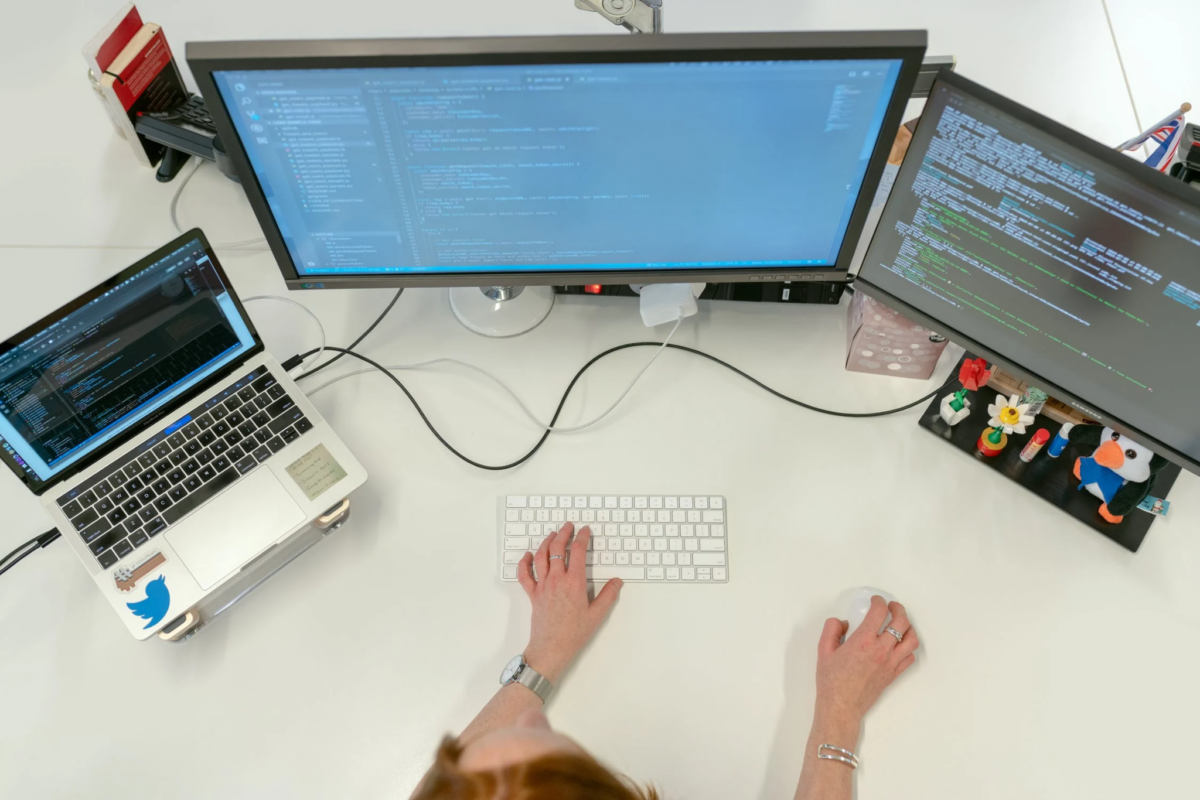If you have just started a new job in the Netherlands, or if you are about to, then read on. This article will introduce you to some typical attitudes towards working and bosses in Holland. If you come from a country where your life revolves around your job, you might find the Dutch perspective a little surprising!
The information on this page is based on the experience of cultural expert Chris Smit. Having lived and worked in the Netherlands for 30 years, he is more than familiar with Dutch working culture. He also drew inspiration and insight from the work of social psychologist Prof. Geert Hofstede, when collating his findings.
Part-time work in the Netherlands
No other nation in the world that has more part-time employees than the Netherlands. Here are a few facts about part-time work in Holland:
- In the Netherlands almost 27% of men, and almost 77% of women, work part-time
- These percentages are dramatically higher than those of neighbouring countries. In Belgium, for example, less than 10% of men, and slightly over 40% of women work part-time. Part-time jobs are in high demand in these places, but are very difficult to find
- The magazine: The Economist, cites a reason for this high level of part-time work in the Netherlands. They believe it is because few men had to leave their homes to fight in the two European world wars. So, unlike countries such as the US and Britain, Dutch women did not have to fill the working positions that the men would otherwise have occupied
For these reasons, it is normal and utterly socially acceptable to work part-time in Holland. If you come from a country where you are seen as lazy if you do not work 50-60 hours a week, this Dutch attitude could take a bit of getting used to!
WORK TO LIVE, OR LIVE TO WORK?
 If you were to offer a Dutchman a pay-rise of € 10,000 per year, in return for his working 50 instead of 40 hours per week, there’s a good chance that he would tell you to keep your money”
If you were to offer a Dutchman a pay-rise of € 10,000 per year, in return for his working 50 instead of 40 hours per week, there’s a good chance that he would tell you to keep your money”
Happiness in NL
So, what is the effect of this part-time work phenomenon? It could be connected to the fact that the Dutch are one of the happiest people in the ‘rich’ world. According to a UNICEF study, this is particularly true of children in the Netherlands.
It is thought that their attitude towards work is responsible for making the Dutch so happy. Of course there are always exceptions, but in general:
- The Dutch tend to view working as a necessity, rather than a joy or a motivator for life
- To a Dutchman, free-time is more valuable than making money or pursuing a career
- The Dutch value ‘Quality of Life’ over earning a lot of money
What About Providing for Children?
In other parts of the world, parents might focus on ensuring that their offspring are well provided for as they grow up, and after they have flown the nest. Hence, having a baby can be an incentive for at least one parent to work more.
The Dutch have a different attitude towards this. Here is what they tend to think:
- If a Dutch couple start to have children, whilst they both work full-time, they need to find a way to care for their newborn
- Childcare is very expensive in the Netherlands
- Many Dutch parents opt to simply work part-time, earn a little less, and look after their baby themselves
- Having the joy of seeing your child grow up is highly valued in Dutch culture
YOUR RELATIONSHIP WITH YOUR DUTCH BOSS
The relationship between a Dutch boss, and his or her employees, is one based on equality. Here are few facts about it:
- A Dutch worker will not feel inferior to his or her boss. It makes no difference how professionally superior the boss is
- The principle duty of a Dutch boss is to create a pleasant working environment for his or her team
- In the Netherlands, a boss will not necessarily set his or her employees challenging goals to increase a sales quota
Dutch Bosses don’t Know Everything
How much your Dutch boss knows about your company, and the work you are doing, may surprise you as well:
- You should not expect your Dutch boss to know the answers to everything relating to your job
- A Dutch boss will not pretend to have more knowledge than they actually do. If you ask a question to which he or she does not know the answer, you may well get an honest: ‘I don’t know’!
- What is more, in the Netherlands your boss will not be embarrassed to ask: ‘why don’t you find out yourself, and tell me about it when you’ve found a solution?’
To some, this element of the Dutch working culture can seem highly unusual, and even unacceptable. Belgian, German, French and Japanese employees find this attitude especially peculiar.
 Tip
Tip
If you are employed by an international organization in the Netherlands, be prepared to work with people from all over the world, who have varying attitudes towards work and bosses.
Foreign employees will assume that their Dutch manager will know a lot more than a Dutch employee would expect them to. Equally, Dutch employees should be aware that a Belgian or Japanese boss may well be a real expert at what he or she does.
Is the Dutch attitude correct?
Of course, if you are working in a multicultural environment, the differences you will see and experience are only that: differences! Here are a few useful principles to remember:
- There are no better or worse cultures in the world; there are only different ones
- By embracing differences there is a lot to be gained
- You will get your best work done if you have a well-managed, happy team who respect one another
- Would you like some advice on how to cultivate this kind of fruitful environment in your office? Get in touch with: chris.smit@culturematters.com
The Dutch attitude towards work and bosses might take some getting used to. However, the Netherlands is widely considered to be a great place to work. Plus, since the Dutch are some of the healthiest and happiest people in the world, they are obviously doing something right!
 Useful links
Useful links
- You can find further information on this topic in our article on the Dutch employment market
- Or, if you are not currently in employment and you like the sound of the Dutch work ethic, why not look into finding a job in the Netherlands?
- The Mobile Life is a must-read for anyone trying to acclimatize to expat life

The Holland Handbook 2024
It is that time of year again; the new and annually-updated version of The ...

Dutch Taxes
Taxes are always complicated. If you have moved to the Netherlands from another country they ...

The UnDutchables 9.0
Following the legendary previous eight editions of The UnDutchables, the 9th edition of this all ...

Making the most of your Dutch home
Whether you are renting, staying in a long-term AirBNB or have just bought a ...

Gift giving in the Netherlands-all ...
If you feel like skipping your birthday, you may be in for a challenge when ...

10 things you will find in every Du ...
The Dutch are very fond of houseplants, the more the merrier! You will find the ...

Obtaining a Mortgage as an Expat in ...
Obtaining a mortgage as an expat in the Netherlands can be a complex process, as ...

Help me move to the Netherlands!
Obviously, the decision to move to the Netherlands is not one to be taken lightly ...

The Impact of Technology on Educati ...
Education is unending and pivotal in society. Technology is one of the most dynamic entities ...

Five Renovation Tips to Increase yo ...
Learn how much home renovations cost – and which repairs increase the home value, and which ...